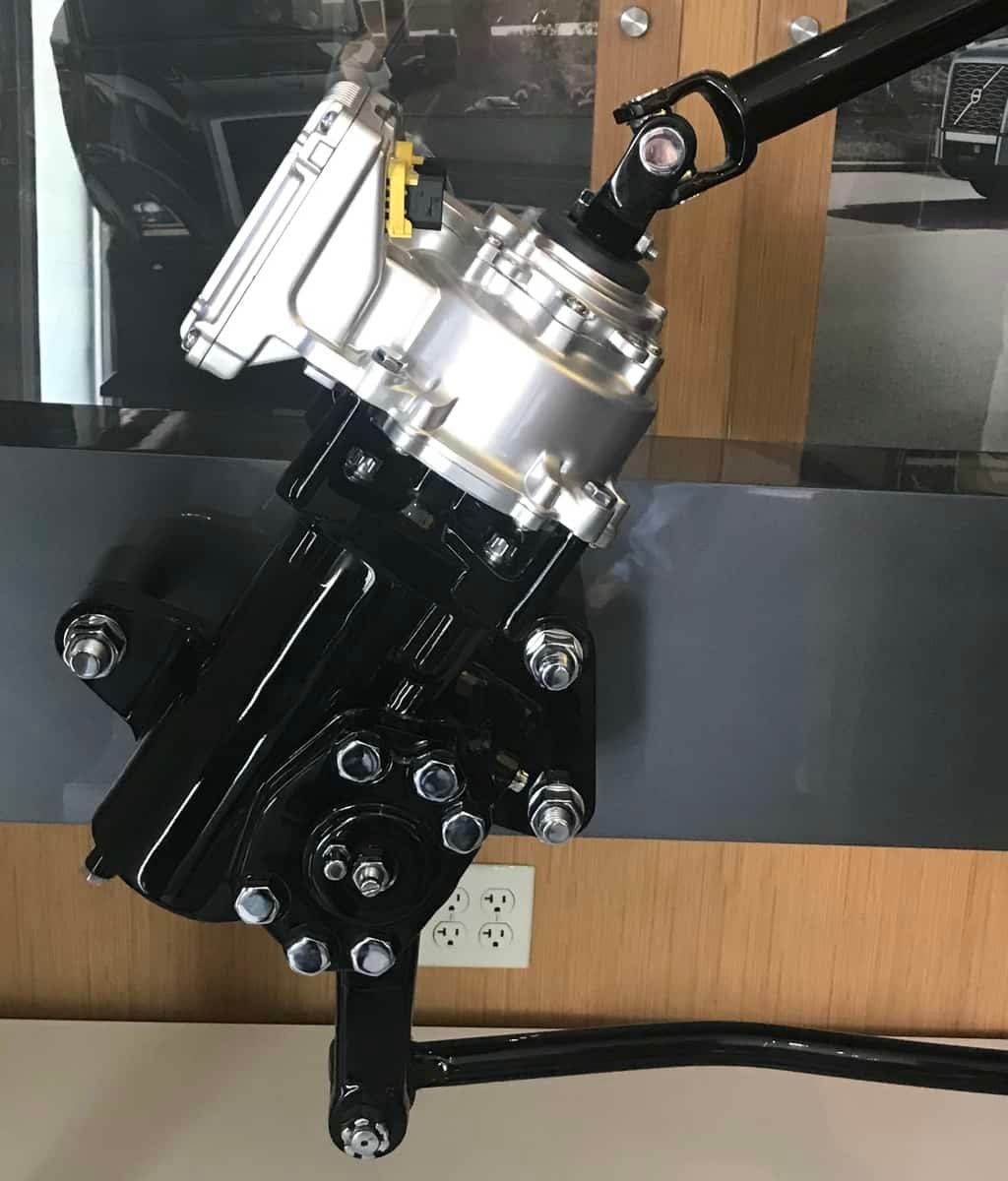Volvo Trucks is importing its Dynamic Steering system to North America next year. The technology’s practically effortless maneuvering of heavy-duty trucks reduces driver fatigue – and could lessen the need for chiropractors treating their neck and shoulder pain, the company said.
The Swedish truck maker introduced the system, which is designed to reduce steering force by up to 85%, on its cabover trucks in Europe in 2013. It demonstrated the precision of the technology in a video featuring Belgian actor and martial artist Jean-Claude VanDamme. The video has been viewed more than 93 million times.
About one in five European orders include the option, up from about one in 20 six years ago.
Strain from maneuvering in tight areas and vibrations from uneven roads and potholes that travel up the steering shaft cause muscular pain to driver’s arms, shoulders and neck. A Volvo survey of 250 drivers found 82% reported regular pain and 63% said they made more frequent doctor visits.
Volvo said testing shows Dynamic Steering can potentially cut muscular strain by up to 30%. For some repeated motions, strain can be reduced up to 70%.
On a closed course at Volvo Trucks’ plant in Dublin, VA, I put the system to the test driving over speed bumps and mildly swerving into and out of a roadside ditch. Backing the 53-foot flatbed required only a finger on the wheel to keep the truck straight between lane markings. On low-speed evasive maneuvers pointed at cones, steering proved practically effortless.
For the April 2020 introduction on its conventional VNR regional and VNL long-haul trucks in the U.S. and Canada, Volvo humorously chronicles on YouTube the chiropractic treatments drivers endure for aches and pains developed from fighting the steering wheel.
How it works
Volvo Dynamic Steering features an electric motor mounted on top of the hydraulic steering gear. Input from multiple vehicle sensors continuously monitors drivers’ actions, environmental factors and road conditions more than 2,000 times per second.

The system provides up to nine pound-feet of torque in the steering column. It features a return-to-center function for the wheel when the truck is in motion. That makes reversing and maneuvering in tight areas easier.
Other features include:
- Stability control for increased directional stability on the highway at all speeds
- Dampening that improves handling by filtering inputs from the road surface
- Torque offset to compensate for crowned roads and steady crosswinds
ZF Friedrichshafen offers a version of a light-touch steering system called ReAX. Robert Bosch will equip Nikola Motors’ fuel cell-powered Class 8 trucks with its ServoTwin electro-hydraulic steering system early in the next decade.
All three systems enable future automated driving, including lane keeping and centering. Daimler Trucks North America is producing the 2020 Freightliner Cascadia that includes Level 2 partial automation features.
Jan-Inge Svensson, a technology specialist in active steering, led the development of the Volvo system beginning in 2006. It took several years to adapt it for North America because of electrical architecture issues. Europe uses a 24-volt system. North America uses 12 volts.
Dynamic Steering on Volvo buses, which have a take rate of about 40%, aided the transition for North America, Svensson said.
The sales pitch
Volvo marketers think Dynamic Steering will catch on in North America because it is a feature that makes driving easier. That appeals to current drivers and new drivers to whom wrestling a truck is unfamiliar.
“Drivers are the trucking industry’s biggest assets, and opportunities to increase driver recruitment and retention are top-of-mind for our customers,” said Chris Stadler, VTNA product marketing manager.







